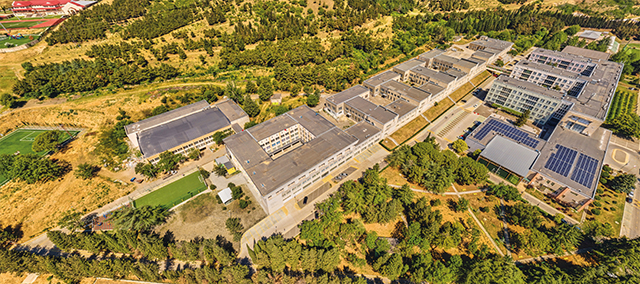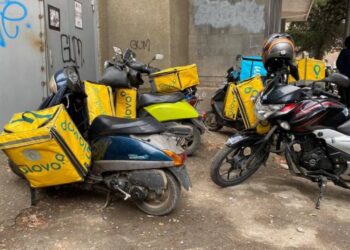Free School was opened in close cooperation with the Free University and the Agricultural University. Here, children will find a comfortable space and experienced teachers. The School also aims to provide students with a basic understanding of practical life skills, among them law, management, marketing, finance and so on. To find out more, GEORGIA TODAY spoke to director of Free School, Amiran Ambroladze.
Why did you decide to open a school?
The Free University and Agricultural University are the highest ranked universities in Georgia according to scores obtained by students at the national exams. There are very few good schools in Georgia, and therefore there are few good entrants. Filling this gap at least partially was one of the goals of opening our school. In general, it is clear that education is the most important thing for the development of the country, and without it, neither democracy nor the economy can develop. Moreover, democracy without education can even be harmful.
In your opinion, why are there so few good schools in Georgia?
A good education is not a priority for all parents (a diploma, yes, but not an education). For them, school is a kind of entertainment center. They think that, in high school, they will train children with a tutor and take them somewhere – it is quite easy to become a student today. Some parents subconsciously think: If I do not have an education, can I not earn money?! Luarsab’s version is: “If I do not know a book, I am no longer a man?!”
This, of course, does not apply to everyone, and this is exactly our niche: we do not try to please everyone – our school is for those who understand the value of education and that without education there is no free person.
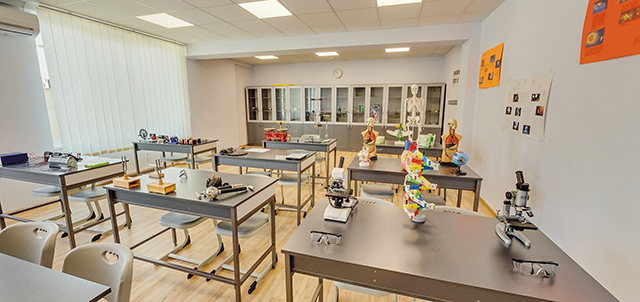
What does the word “free” mean to you?
For me personally, freedom of thought is very important, which is much more than freedom of speech. Freedom of speech is when you say what you think. Freedom of thought is when you think about what you feel.
Does free mean free behavior too?
Yes, but to the natural extent that, for example, one child’s “free” behavior does not interfere with the normal conduct of the lesson and thus restrict the other child’s right to acquire knowledge in a quiet, pleasant work environment.
In general, freedom and order are not contradictory concepts. I know two countries well, Georgia and Sweden (I have dual citizenship) and if I compare, Sweden has more freedom and order at the same time.
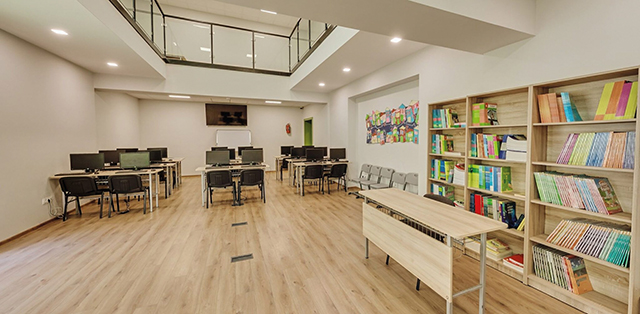
What other priorities does your school have?
Safety first! And we fully agree with the school parents on this. Both physical and moral protection are very important to us. Bullying is completely unacceptable to us, both between children and between a child and an adult from any side.
Having fun is also an important priority for us and we believe that learning should be done in the most fun and entertaining way, taking into account the interests of the students. However, learning sometimes requires special mobilization from the learner as well.
You mentioned that you know Sweden well. Are you thinking of copying the Swedish system?
No. The fact that the Swedish education system is much better than Georgian does not mean that a standard Swedish school provides a good education. This I experienced for myself, one as a parent (my two daughters were studying there and it was very difficult for me to choose a good school for them) and the other as a lecturer – very poor graduates came from the school desk, and at one of the technical faculties at Lund University (where I worked) we even introduced a regular school planimetry course as a subject to develop logical thinking for freshmen. This course was removed from the Swedish school curriculum with the simple logic: if not everyone can learn planimetry, then let no-one teach it.
Another point: the system that exists in Sweden is adapted to the Swedish character and may not work in the Georgian reality. I am reminded of such a story: when Gorbachev declared at the dawn of perestroika that he wanted to build a Swedish model of socialism in the Soviet Union, one of his opponents resolutely rejected the idea with the following simple argument: There are very few Swedes in our country.
We are not going to copy any models, but we will transfer all the advanced ideas that are appropriate to the Georgian reality. With this we will create our own model.
Since I mentioned the Soviet Union, I would also say that it would be good if we could get rid of Soviet totalitarian thinking and give more freedom to schools. Education is such a complex and inexhaustible science that no one school should consider that it has exactly the right concept of education and impose itself on everyone else. Let the diversity of schools and life shows what is right and what is wrong.
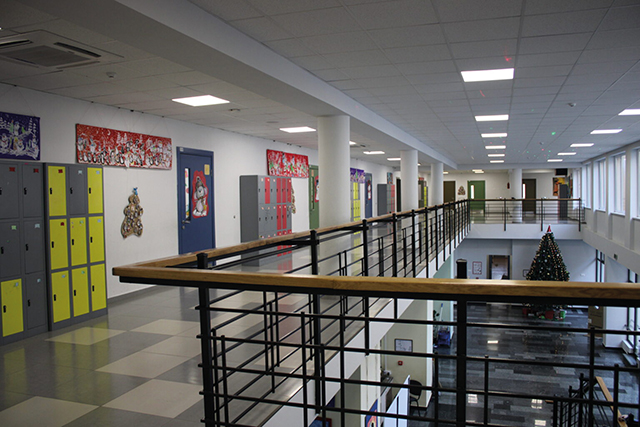
Are Georgian and Swedish students different?
Yes, just like a Georgian driver is different from a Swedish driver. The success of the Swedish education system is largely based on Swedish organization and hard work. I will bring you an interesting example. When I started working at Lund University, they first explained to me what it was like and finally told me a strange thing: I could go to seminars five minutes late. This surprised me a lot. I had previously worked at another Swedish university and was well acquainted with Swedish punctuality. By the way, the Germans tell the same anecdotes about Swedish punctuality that we tell about the Germans. Now these extra Germans were telling me that I could be five minutes late for my seminars. Students took these five minutes to organize their notebooks and books, look at homework assignments, and prepare questions. Indeed, when I entered the seminar, everyone was reading books and notebooks. I have not had such a case in Tbilisi. On the contrary, it takes time for the first five minutes to calm the students down and get them concentrating.
Let me give you another example: When my two-year-old son came home from a Swedish kindergarten, he would pick up toys from the closet, play with them, and then put them back in the closet when done. Now this boy is 21, he lives in Tbilisi and we can’t even teach him how to bring his used plate to the sink. More precisely, we did not teach it.
Today there is an opinion that school should prepare a child for life and not teach specific subjects. What do you think about it?
One does not exclude the other. On the contrary. How will a child be prepared for life if he does not know how to count elementary percentages, or does not know two words in a foreign language? At the same time, I personally think that, for example, in biology, more time should be devoted to the study of a healthy body and way of life than to the study of the detailed structure of an amoebic cell. It is not necessary to memorize a lot of facts and dates in history either. It is very important to understand the logical connection between different events and to ask the right questions. In Free University, the exams are conducted on the principle of open book, and the student can remove all the factual data from the book directly during the exam.
Our school also plans to provide students with a basic understanding of practical life items such as law, management, marketing, finance and so on.
How do you select teachers?
Very easily. We announced high salaries and we hire those who agreed. Seriously, teachers are a big problem in Georgia. Interviews have shown that, unfortunately, 80% of math teachers themselves do not know the school course they are supposed to teach. I’m a mathematician, and I’m allowed to speak in a mathematical subject that way, otherwise the situation is probably the same in other subjects. It will take a lot of time and energy to fix this.
What criteria do you use to select your teachers?
Our teachers take a test in Logical Thinking in their own subject (with Free University relevant subject professors) and demonstrate teacher skills by explaining a specific topic from the school course.
We try to ensure that our teachers are valued not only materially but also morally. They are not instructed by the school administration to, for example, raise marks for children, make parents happy, and generally do everything to please them, which, in the end, is harmful to the parents (I would also say that fortunately we have few such parents). We do not have the principle that the client is always right. For us, school is not an ordinary business.
By Mariam Mtivlishvili

